SLA Management
Monitor KPIs with AI & automation - ensure that all SLAs are met.
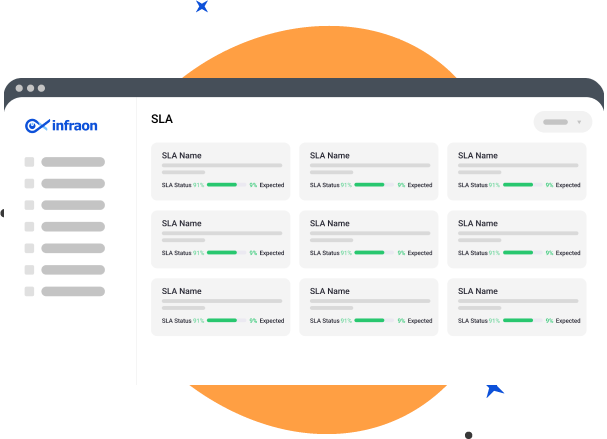
Monitor KPIs with AI & automation - ensure that all SLAs are met.

Infraon ITSM’s SLA Management feature automates workflows such as escalation procedures, notification processes, and request management with AI-led collaborative workflows.
Leverage customizable SLA templates to set objectives, escalation procedures, and more. Boost user satisfaction, meet compliance requirements, and improve workspace service quality.

Infraon ITSM enables you to monitor and track SLAs in real time - with alerts and notifications in case they are not fulfilled. Using AI-based workflows, you can also create thorough reports that provide insights into SLA compliance, including response/resolution time, uptime measures, etc.
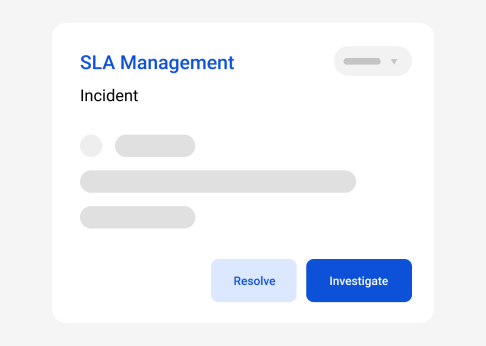
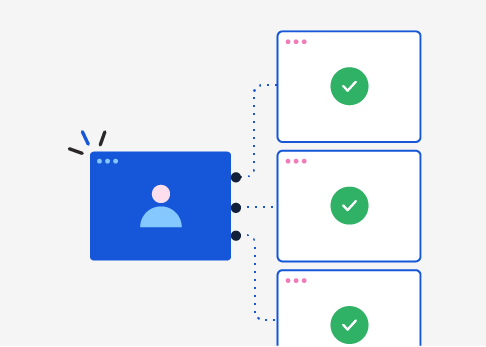
Infraon ITSM comes with an AI-powered customer portal to view SLA status, read SLA reports, and make service requests. You can get a 360-degree view of SLA data – enhancing your decision-making process.
Infraon ITSM makes it simple to integrate with other systems like CRM and other monitoring tools. Harness AI-driven workflows to quickly generate a comprehensive overview of service performance.
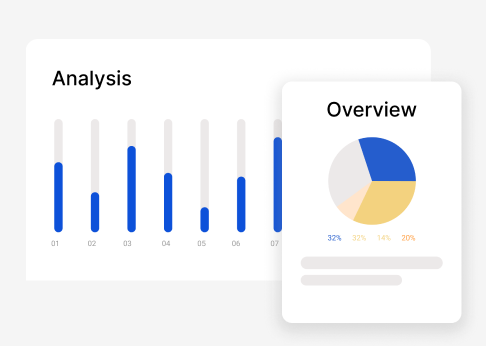
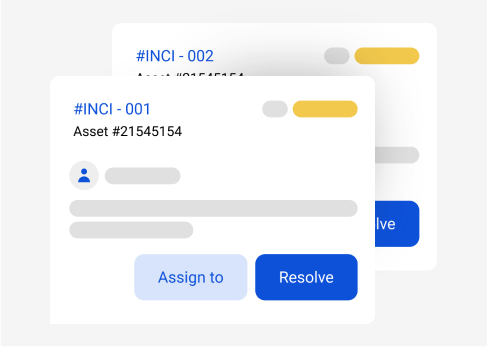
Infraon ITSM includes the incident management feature to manage and resolve service issues, determine the root cause of incidents, track problems, etc. You can significantly reduce the impact that service issues have on IT-related SLAs.
Custom Reports
Custom Alerts
Schedule/Report Exports
Customizable Fields
Bulk Excel Import/ Export
Custom Roles
